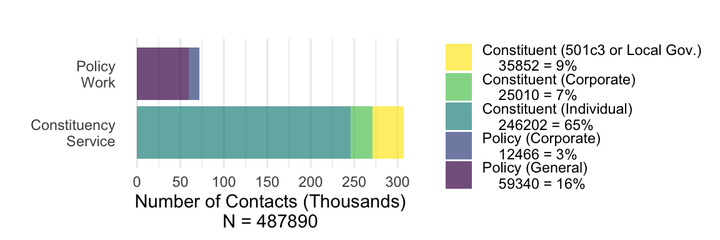When elected officials gain power, do they use it to provide more constituent service or to affect broad public policies? Answering this question informs debates over how legislator capacity, term limits, and institutional power affect political representation. We distinguish two countervailing effects of increased institutional power. First, as elected officials gain power, they allocate relatively more effort to policy over constituency service. Second, institutional power provides additional resources and therefore increases their overall capacity. To assess the extent to which these countervailing effects of institutional power affect behavior, we assemble a massive new database of 487,890 Congressional requests to federal agencies between 2007 and 2018 obtained through 429 FOIA requests, a near census of departments, agencies, and sub-agencies. We find that most legislator contacts with the bureaucracy are constituency service, regardless of institutional position and tenure. Leveraging variation within legislatoragency pairs, we show that legislators prioritize policy work as they gain power and experience, but increasing overall capacity enables them to maintain levels of constituency service. Consistent with our theory that service depends on capacity, we show that new legislators do less policy work and constituency service than their more senior colleagues. In a series of robustness checks, we show that our findings are not the result of exogenous variation in constituent demand. Rather than long-serving and powerful elected officials diverting attention from their district, their increased capacity enables them to maintain levels of constituency service, even as they prioritize policy work.
The Effects of Shifting Priorities and Capacity on Policy Work and Constituency Service
Evidence from a Census of Legislator Requests to U.S. Federal Agencies
